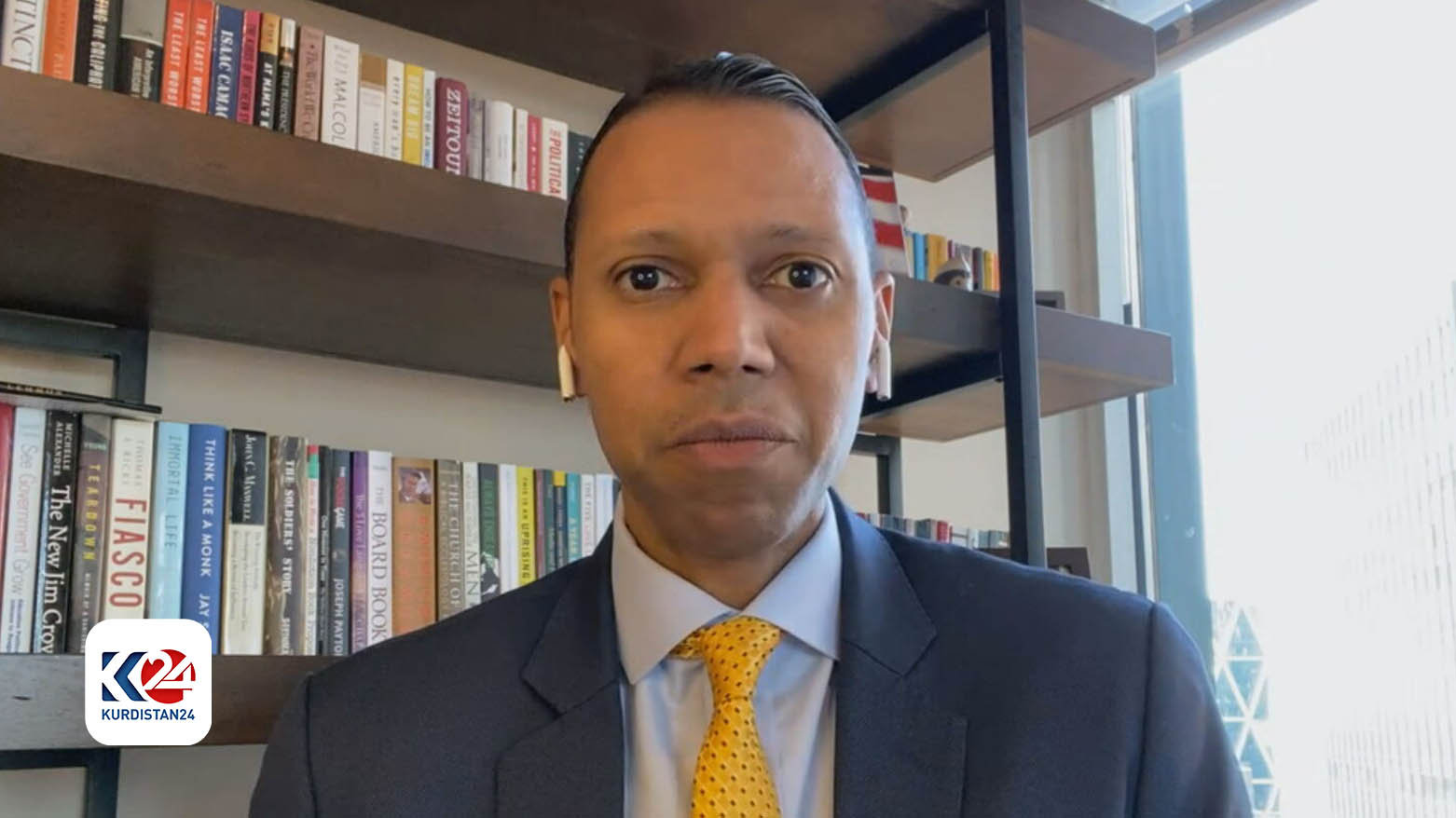Kurdistan Region, Iraq lost $7 billion in oil revenues thus far in 2023, says APIKUR spox

ERBIL (Kurdistan 24) – Myles B. Caggins III, the spokesperson for the Association of Petroleum Industry of Kurdistan (APIKUR), had an exclusive interview with Kurdistan 24, in which he touched upon the stalemate in a resumption of Kurdish oil production and exports.
APIKUR was founded in 2023 by international upstream oil and gas companies active in the Kurdistan Region of Iraq with the goal of promoting the Region as an attractive destination for international oil and gas companies.
APIKUR members include Genel Energy, Gulf Keystone Petroleum, Shamaran Petroleum, HKN Energy Ltd, DNO and Hunt Oil. Together, they contribute to approximately half of the oil production in the Kurdistan region of Iraq.
APIKUR spokesperson Myles B. Caggins III said that they have seen important developments with high-level meetings with both Kurdish and Iraqi officials.
“Prime Minister Barzani has also indicated that it's important that current contracts are respected by Baghdad and the members of APIKUR,” Caggins noted.
“We have seen statements from the Iraqi prime minister and the Kurdistan Region prime minister together saying ‘it’s important to get oil production resumed quickly’.”
He also added that their member companies have production-sharing contracts with the Kurdistan Regional Government (KRG), and there is a sharing of revenue from international oil companies with the Kurdish government, which is respected by APIKUR members.
“Now there are discussions between Baghdad and Erbil about how those arrangements for future payments will happen and when that’s clear, the APIKUR companies can resume full production.”
“These negotiations cannot happen independently from the companies to Baghdad or only between Baghdad and Erbil…within one week’s time. [...] There is important progress and hopefully, there will be a solution to the oil production contracts soon,” the spokesperson explained.
Meanwhile, he stated that all sides agree that there is an urgent need to resume oil production and exports of oil through the Iraq-Turkey pipelines.
“APIKUR, Baghdad, and Erbil know that there have been seven billion dollars lost this year. That oil has not been produced and sold, and it hurts all the people of Iraq. We have seen budgetary issues affecting the Peshmerga and teachers and there has been a slowing down of projects because there is less revenue because oil has not been sold,” he underlined.
Additionally, he believed that the recent discussions between the KRG and officials from Baghdad should “have a full understanding of how our contracts are fair and legal and this has been a process that has worked well for the KRG and international oil companies for about 15 years.”
“With the current production-sharing contracts, APIKUR members can sell oil produced in the Kurdistan Region to Baghdad through SOMO [State Organization for Marketing of Oil]. In Dubai, we informed [Iraqi] Ministry of Oil officials and SOMO that we’re willing to sell oil to federal Iraq so that oil can then be exported to global energy markets,” the spokesperson revealed.
Furthermore, he stressed that APIKUR is encouraging Baghdad and the Kurdistan Region to come to a solution because the international oil companies have a track record of bringing in foreign investments, while noting that oil and gas represent 80% of the Kurdistan Region's economy.
“The APIKUR contracts with the KRG were written 15 years ago. Our contracts are legal and if we had disputes, we would have to go to the London Court of Arbitration,” Caggins concluded, while referring to potential litigation.
